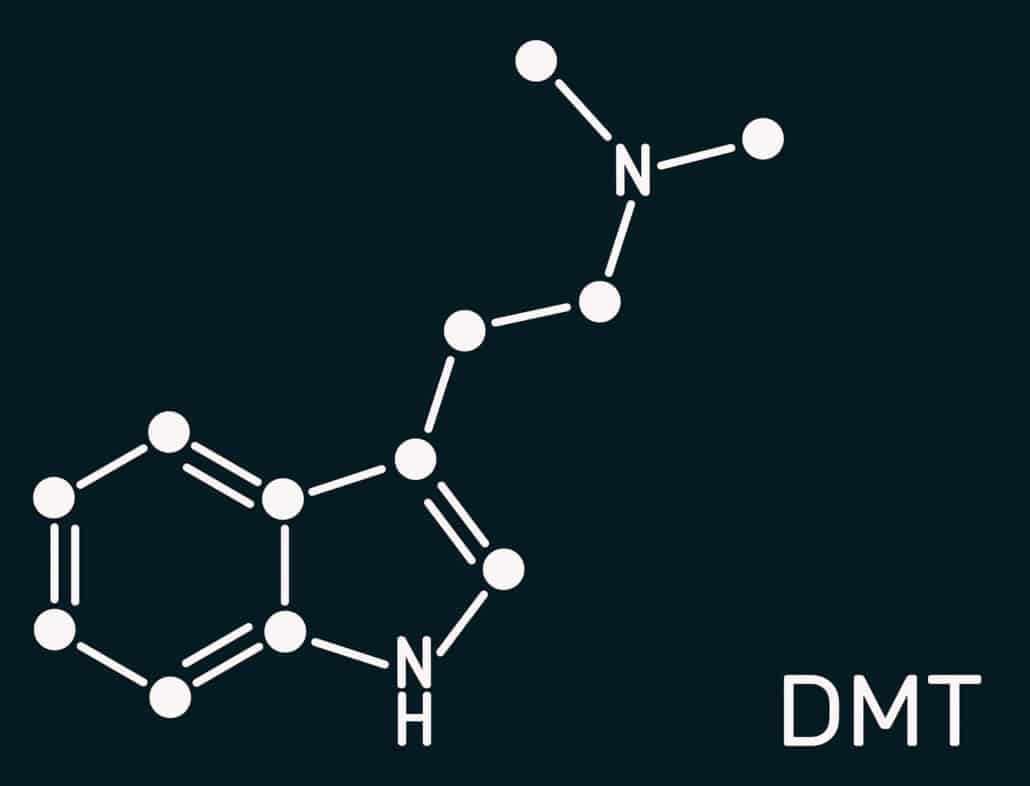DMT addiction is a life-altering disorder that can affect your family, social life, health, and work. Recovering from it may be difficult for some, especially without help from experts.
The good news is that DMT addiction treatment is more accessible than you think!
Let’s get you the help you need and explore the best options for DMT addiction treatment in New York.
Table of Contents
Understanding DMT Addiction
DMT isn’t a popular drug among people with addiction. However, its usage is on the rise. A 2018 study showed that its prevalence increased nearly threefold from 2007 to 2014.

Here’s what you should know about DMT addiction today.
What Is DMT?
DMT is a hallucinogenic substance classified as a Schedule I illegal drug under the Controlled Substances Act. As a strong psychedelic drug, it can alter your mind and sense of reality.
People who take DMT report hearing voices and seeing things that aren’t there. What’s more, it can cause dissociation, psychosis, anxiety, and paranoia.
By itself, DMT rarely causes an overdose. What’s worrying is that people selling this drug often mix it with more dangerous substances.
Because of its hallucinogenic nature, a DMT trip can potentially be fatal, especially if you take it in an unsafe environment.
DMT Side Effects and Risk Factors
Some side effects and risk factors of taking DMT include the following:
- High blood pressure
- Loss of coordination
- Agitation
- Seizure
- Confusion
- Lack of sleep
- Lowered sex drive
- Rapid eye movements
- Chest pain
DMT Withdrawal Symptoms
DMT isn’t as addictive as other substances, and it rarely produces withdrawal symptoms. Still, some people can develop a behavioral dependency on it.
After taking DMT, you may experience anxiety, racing thoughts, and difficulty sleeping. Moreover, there may be agitation and lingering mental effects even weeks after taking DMT.
Taking too much DMT can lead to persistent psychosis and hallucinogen-persisting perception disorder. This is a chronic disorder where you feel the impact of the drug even months or years past your last dose.
The Long-Term Effects of DMT
Long-term effects of hallucinogens like DMT may include seizures, coma, and memory loss. You’ll encounter mood swings, sleep deprivation, and depression.
Over time, you can develop tolerance and other behavioral habits around your addiction.
Sadly, if you become addicted to substances like DMT, you may also potentially bring harm to your future family.
Some research shows that drug abuse disorders can be passed down from generation to generation. Certain genes in your DNA can increase your likelihood of becoming addicted to substances.

The Process of DMT Addiction Treatment
Here’s what to expect when you begin DMT addiction treatment in New York
1. Assessment
There’s no one-size-fits-all approach to addiction treatment, so evaluating your circumstances means you get a personalized recovery plan.
Before anything else, a professional health provider will interview you to learn about your health and other preferences.
Here, you’ll receive an outline of the type and level of care of your treatment. You can then compare prices between facilities and pick the ones covered by your health insurance.
2. Detox
Next, you’ll need to purge the DMT from your system through detoxification.
For DMT, the withdrawal symptoms aren’t as severe as other illegal substances. However, there are medication options for those who need medication.
Your doctor can prescribe suitable anxiolytics and sedatives to help you during this time.
3. Recovery
Therapy and counseling are essential components of recovering from DMT addiction. They can help you recognize the signs of behavioral dependency and improve your well-being.
Here are some evidence-based therapies you may go through.
- Dialectical Behavior Therapy: In DBT, you gain skills that’ll lead you to identify troubling thoughts and emotions. You can then begin to replace harmful behaviors with better ones.
- Cognitive Behavioral Therapy: CBT, or talk therapy, is when a counselor uses logic to help you sort through emotions and experiences. It’s a guided conversation that lets you identify what’s healthy or not.
- Motivational Interviewing: Motivational interviewing treats those with mixed feelings about changing their behavior. It fosters collaboration over confrontation and emphasizes autonomy over authority.
- Counseling: During counseling, a professional will assist you in controlling your triggers. You may do it individually or in a group setting with people undergoing the same experiences.
- Family Therapy: A supportive family can significantly increase your chances of recovery. This therapy improves communication and eliminates enabling behaviors within a family unit.
4. Continuous Support and Aftercare
Finally, you’ll undergo aftercare planning to prevent relapses. It involves enrolling in 12-step programs and joining support groups.
Through aftercare, you build a foundation that can prevent you from relapsing in the future. You may even join activities for skill development!

Rehabilitation for DMT Addiction Treatment
On top of therapy and counseling, you may also need to undergo rehabilitation throughout recovery. Here are your options for rehabilitating from DMT addiction around New York.
1. Inpatient Treatment
Inpatient treatment is one of the most intensive programs for substance addiction. Here, you live full-time at the hospital or facility and receive 24//7 medical care.
The advantage of this program is that doctors can monitor your withdrawal symptoms and prescribe you the necessary medication. Living at the facility also means you don’t have to return to an unstable home and potentially re-trigger your addiction.
One downside to inpatient treatment is you have little contact with the outside world. Still, you may receive visitors from time to time.
Inpatient treatment lets you focus all your energy on recovering. It gives you a headstart on getting your life back on track.
2. Outpatient Treatment
Outpatient treatment is when you visit the facility during the day but return to your home at night. Patients dedicate a few hours of their day to this treatment five to seven days a week.
This type of treatment is ideal if you’re close to the facility and have a stable home environment.
Outpatient treatment doesn’t disrupt your life as much since you can still work and see your family.
3. Partial Hospitalization Programs
A partial hospitalization program is an intensive treatment for those with a moderate addiction to substances. Here, you must spend at least six hours at a facility five days a week.
During PHP, you’ll receive a diagnosis of your mental health condition. Afterward, you get medications as you attend behavioral therapy sessions.
This program is great for those who don’t need 24-hour monitoring. Yet, you need a stable home without triggers to qualify.
4. Intensive Outpatient Programs
An intensive outpatient program is best for people who want to develop skills and relationships for living a sober life. These programs may have a day or night schedule that’ll let you keep up with school, work, or family.
During intensive outpatient therapies, you’ll undergo individual and group sessions. Plus, you receive help with medication management and strong aftercare support.
Intensive outpatient programs are perfect for those who can’t commit to full-time hospitalization. It’s also less costly than other treatment methods.
5. Residential Treatment
In residential treatment, you stay in a facility with a homelike environment. This will help you stay away from DMT triggers that may be present at your house.
Residential treatments are effective for rehabilitation because you get access to medical treatment. On top of this, it can help you establish a daily routine and prepare you for life outside the facility.
You can avail of a residential treatment program from a few weeks to several months.

How Much Is DMT Addiction Treatment in New York?
The price of DMT addiction treatment depends on your personal treatment plan. In general, outpatient treatments will be cheaper than inpatient ones.
Don’t worry. Your insurance may cover all the costs of treatment! We accept most major health insurance plans to cover the cost of rehabilitation.
You can verify your insurance quickly without committing through our website. Our trained professionals are always available to answer any questions you may have.
When Should You Seek DMT Addiction Treatment?
Continued substance abuse may cause harm to your family, employment, and yourself. DMT also has long-term effects on your physical and mental health.
Remember that you don’t have to keep taking psychedelic drugs to feel happy and enlightened. If you can’t control your urges or if you suspect you’re becoming addicted, it’s time to seek treatment.
Asking for help may sound scary, but it’s the first step to recovery.
You can start your journey by reaching out to us or a trusted family member. We’ll get you the support you need under full confidentiality!
Conclusion
DMT is a harmful substance that can cause hallucinations, anxiety, agitation, and fear in patients. It’s not as dangerous as other drugs, but it can still put you in danger.
DMT may cause you to see or hear things that aren’t there, leading to accidents and disruptions in your daily life.
If you believe you’re addicted, there are many available DMT addiction treatments in New York. Some are inpatient, outpatient, partial hospitalization, or residential treatments.
Please contact Long Island Interventions for information about Dimethyltryptamine Addiction Treatment near you.

